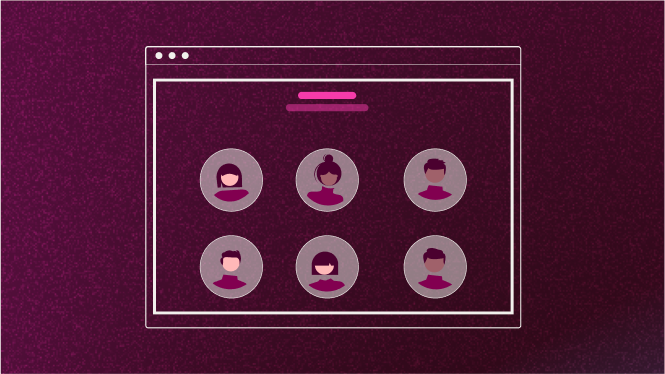The impact of empathy in the workplace has been proven time and time again. It boosts innovation and engagement, decreases the risk of burnout, and improves employee retention.
Empathy deserves more attention. This is especially true for leadership positions, as the demand for CEOs and executives who understand the importance of honesty, humility, and empathy continues to increase.
.png)
Another interesting result from the study was that while 92% of CEOs believe their company is empathetic, only 72% of employees agree with them. Moreover, half of the respondents of another study believe that their organisation’s efforts to express empathy are dishonest.
What is empathy
Empathy is understanding and sharing someone else’s feelings or experiences. It’s usually a response to someone sharing their vulnerability. Empathetic people can easily imagine themselves in another person’s situation.
In contrast to sympathy, this allows them to understand why a person feels a certain way. According to J. Zaki, a professor of psychology and the director of the Stanford Social Neuroscience Laboratory, empathy can be learned and developed as a skill.
A person can achieve it through exercises such as developing self-compassion and engaging in open conversations where different opinions are shared with mutual understanding. It also includes focusing on others instead of ourselves.
Why empathy is important at work
“At Keller Executive Search, we've observed a clear pattern: organisations that actively cultivate empathy consistently outperform those that don't.” - Julia Yurchak, Senior Recruitment Consultant, Keller Executive Search
Understanding the importance of empathy in the workplace is essential. In fact, 9 in 10 employees, HR professionals, and CEOs believe that an organisation must demonstrate empathy. According to the study, 87% of employees consider empathy essential in fostering an inclusive environment, job satisfaction, and efficiency.
Supportive environment
Understanding the needs of others fosters a supportive environment. Understanding what others require to feel valued and effective can create stronger connections and improve collaboration.
Better mental health
Stronger relationships
Taking an empathetic approach at work validates employees. It fosters trust and builds stronger relationships with open communication. Employees are more likely to stay in an organisation that shows empathy.
“When people feel understood and appreciated, they are more likely to contribute meaningfully and collaborate effectively.” - Kevin Shahnazari, Founder and CEO, FinlyWealth
Expressions of empathy are especially valuable in difficult situations. Whether addressing an unexpected failure, supporting someone through tough times, or a colleague admitting to making a mistake. All these situations generate stress.
Expressing empathy in these situations can make a significant difference. But how can we express empathy while remaining authentic? Let’s explore some ways to do it successfully.
Ways to express empathy
Be authentic
Being genuine with your employees is key, especially in difficult situations. When faced with challenges, transparency and honesty have the most impact. Showing genuine concern makes all the difference. Authenticity inspires people to come to you for help and support.
Ask questions to facilitate understanding
Empathy comes with a deeper understanding. Sometimes, we can’t empathise, not because we don’t care, but because we don’t fully understand the other person’s situation. Asking thoughtful questions out of genuine curiosity is an excellent way of practising active listening and gaining more insight into others’ perspectives.
Reward vulnerability
Creating an environment of psychological safety involves consistently rewarding vulnerability with empathy. Acknowledging others’ feelings and validating them fosters trust and a culture of sharing. With time, vulnerability and empathy will be normalised and celebrated in the company culture.
Make it loud
If something has been helpful to you, take time and express your appreciation publicly. Recognising and praising empathy in others also sets a powerful example for the team. It will encourage everyone to embrace this behaviour, promoting an empathetic workplace.
“As a leader, I try to show empathy in my actions. I listen actively and respond to my team’s needs. When they see me practicing empathy, they are more likely to do the same.” - John Wilson, Wilson Plumbing and Heating
When you start cultivating more self-awareness and practising expressing empathy, remember that you’re doing it for the good of everyone. Humans are more likely to engage in something we already see others doing, which is essentially how cultures are created and maintained. Regarding workplaces, it’s up to every individual to support helpful and positive behaviours.
So, next time you see someone struggling or expressing vulnerable feelings, try to relate to them and think about what kind of support you’d need in a similar situation. Always remember that cultivating kindness is contagious.
About the author
Darja is a Behavioural Scientist and Customer Success Manager. She holds a Master’s in Social Sciences from the University of Helsinki, specialising in business anthropology and organisational psychology. She is also working on service and product development.



